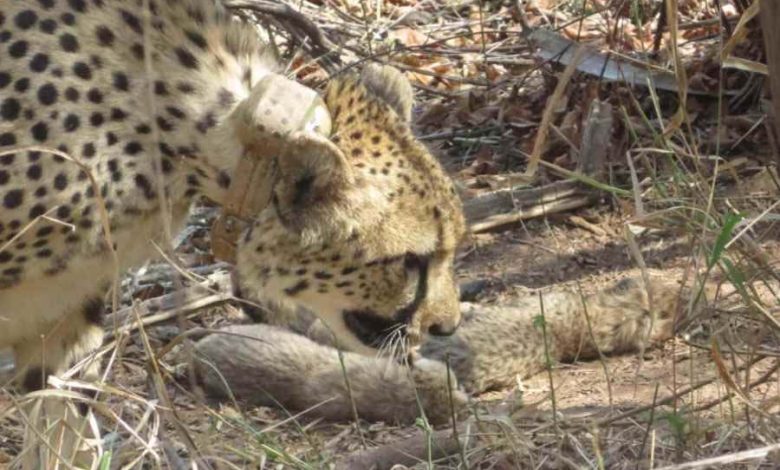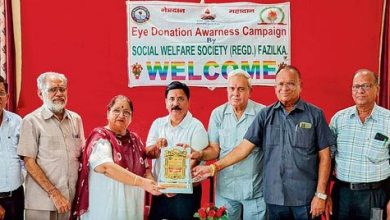Kuno National Park: South African cheetah gives birth to five cubs

India’s cheetah introduction project celebrated its fourth litter on Sunday. The Union Environment Ministry said that a cheetah from South Africa has given birth to five cubs in Kuno National Park in Madhya Pradesh.
His birth marks the first cub of cheetahs brought to Kuno from South Africa and taking the number of cubs born in India to 13, Environment and Forest Minister Bhupendra Yadav wrote to X, announcing his birth.
“Congratulations to all, especially the team of forest officials, veterinarians and field staff who have ensured a stress-free environment for the cheetahs, leading to successful mating and birth of cubs,” Yadav posted. “The total number of cheetahs in Kuno National Park, including cubs, is 26.”
An official with an international wildlife organization monitoring India’s cheetah project said on Sunday that the births showed that the Indian team was becoming adept at independently managing cheetah and facilitating the birth of cubs.
“They are rapidly building their learning process – it is going according to plan,” the official said.
The Environment Ministry had sent eight cheetahs from Namibia in September 2022 and 12 cheetahs from South Africa in February 2023 to Kuno as part of a project aimed at establishing clusters of cheetah populations in the grasslands and forests of India. India declared the cheetah locally extinct after the last Indian cheetah was hunted and killed in 1947.
Previous cubs in Kuno were born to Namibian cheetahs in March 2023 and January this year. Along with littering, a series of deaths of cheetahs has also hampered the project in the backdrop of concerns among some wildlife biologists over what they described as the lack of sufficient open space for wild cheetahs in India. Have done.
Since March last year, seven adult cheetahs and three of the four cubs born in March 2023 have died due to various determined and undetermined causes. Wildlife officials had attributed the death of the cubs in May 2023 to heat and dehydration.
“Cheetahs are delicate large predators and their reintroduction is extremely challenging,” said Vincent van der Merwe, a cheetah expert at the Metapopulation Initiative in South Africa, who helped bring the cheetahs from South Africa to Cuneo.
“These births represent the beginning of the recovery of wild cheetah populations in their historical range in Asia,” van der Merwe told The Telegraph.
But a section of wildlife biologists say the cheetahs in Kuno have spent long periods of time inside the enclosure, which is an indication that the project has not proceeded as planned. The objective of this project is to establish a population of freely roaming cheetahs in the open forest.
“Almost all cheetahs are in captivity and all are born within fenced enclosures,” said Ravi Chellam, a big cat expert and coordinator of the Biodiversity Collaboration, a network of conservation researchers. “For now, it’s more of a glorified cheetah safari than a conservation project.”





